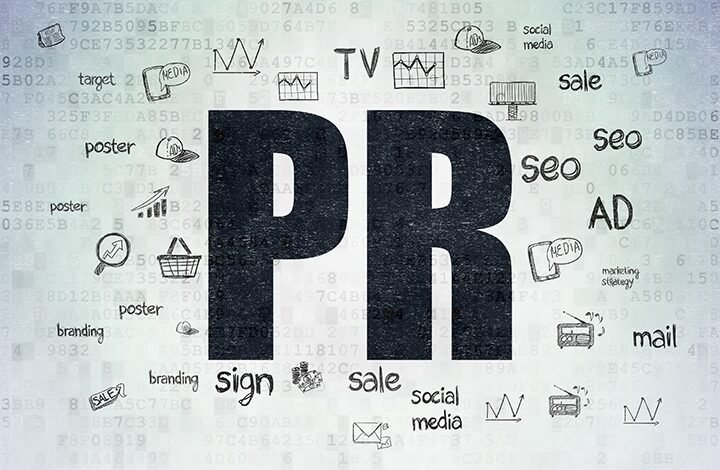
In today’s dynamic business world, public relations (PR) plays an essential role in building brand identity, increasing visibility, and establishing credibility. For startups and small businesses, choosing the right PR agency like Impact Authority is a strategic decision that can shape the future of the business. This guide will walk you through the key considerations for selecting the ideal PR agency to help your business thrive.
Why Startups and Small Businesses Need PR
Startups and small businesses operate in competitive environments, often with limited resources. Unlike large corporations, they may lack the brand recognition or funding to invest heavily in advertising campaigns. PR offers a cost-effective way to create an impactful brand presence through storytelling, media placements, and targeted outreach.
- Brand Awareness: PR agencies help startups build brand awareness, making them visible to their target audiences.
- Credibility: Through media exposure and thought leadership, PR enhances a brand’s credibility.
- Investor Attraction: For startups looking for funding, positive PR can attract the attention of investors.
Identifying Your PR Needs
Before approaching PR agencies, it’s crucial to identify your company’s specific needs. Understanding these objectives will help in selecting a PR agency that aligns with your vision.
1. Define Your Goals
Determine what you want to achieve through PR. Are you aiming to increase brand awareness, improve public perception, generate media coverage, or manage a crisis? Setting clear goals will guide you in choosing an agency with the right expertise.
2. Budget Considerations
Consider how much you’re willing to invest in PR. Some agencies may be flexible with their pricing, especially for startups, while others may have a set pricing structure. Ensure the agency you choose provides transparency in pricing and matches your budgetary constraints.
3. Scope of Services Required
PR agencies offer a range of services, from media relations and press release distribution to content creation and social media management. Based on your goals, decide which services are necessary and look for an agency that can fulfill these requirements.
Types of PR Agencies and Their Specializations
Not all PR agencies are the same. Some focus on specific industries or services, while others cater to a broader audience. Here are some common types of PR agencies that you might encounter:
1. Boutique PR Agencies
These are often small, specialized agencies that work closely with a select number of clients. Boutique PR agencies are known for their personalized services and may offer more flexibility in pricing and approach, making them ideal for small businesses.
2. Industry-Specific Agencies
Certain PR agencies specialize in particular industries, such as technology, fashion, or healthcare. If your business operates in a niche market, an industry-specific PR agency may have the expertise, connections, and strategies that align with your business.
3. Digital PR Agencies
Digital PR focuses on online presence, SEO-optimized content, and social media. For startups and small businesses that are highly active online or have an e-commerce component, a digital PR agency can help establish a strong digital footprint.
4. Full-Service Agencies
Full-service agencies offer a broad range of services across media relations, crisis management, content marketing, and digital PR. They are suitable for startups that require comprehensive PR support across multiple channels.
Researching Potential PR Agencies
With so many agencies to choose from, conducting thorough research is essential. Here’s how to evaluate agencies to find the right match for your business.
1. Examine Their Track Record
Look for agencies that have a proven track record of success, especially with clients in similar industries or with similar challenges. Agencies should be able to provide case studies, client testimonials, and sample campaigns that demonstrate their ability to achieve results.
2. Check Their Media Network
An agency’s media connections play a critical role in how effectively they can deliver results. Ensure the agency has relationships with journalists, editors, and influencers in your industry. This network will increase the likelihood of successful media coverage.
3. Evaluate Their Digital Presence
Explore the agency’s online presence, including their website, social media profiles, and blogs. This can provide insight into their expertise, approach, and knowledge of the current digital landscape.
Questions to Ask When Choosing a PR Agency
When interviewing potential agencies, it’s important to ask the right questions to ensure they align with your expectations.
1. What Are Your PR Strategies for a Business Like Ours?
This question helps determine if the agency understands the unique needs of startups or small businesses. Look for specific examples of strategies they’ve used to help similar businesses achieve their goals.
2. How Do You Measure Success?
PR agencies should have a clear approach to measuring outcomes through metrics such as media placements, audience engagement, and website traffic. Ensure they align with your goals and expectations for return on investment (ROI).
3. What Does Your Client Communication Process Look Like?
Effective communication is essential in PR. Ask how frequently they provide updates, whether they offer regular progress reports, and what their approach is for adjusting strategies when needed.
4. Can You Provide References?
A reputable PR agency should be able to provide references from previous clients. Contact these references to ask about their experiences with the agency, including the agency’s responsiveness, professionalism, and results achieved.
Key Attributes of an Effective PR Agency
Choosing the right PR agency requires more than checking boxes; it requires assessing the agency’s culture, approach, and values. Here are some attributes to look for:
1. Adaptability
The business landscape is constantly evolving, and PR agencies need to be adaptable. Choose an agency that stays up-to-date with trends and has the flexibility to pivot when necessary.
2. Creativity
PR is about telling compelling stories. A creative agency will find unique ways to position your brand, making it memorable and appealing to your audience.
3. Transparency
Transparency in communication, pricing, and processes is crucial. Ensure the agency is open about its methods, the potential results, and any limitations.
4. Strong Media Relationships
An agency’s connections can make a significant difference in the success of your PR campaign. Agencies with established relationships with journalists and media outlets can more effectively promote your brand.
5. Clear Communication
A good PR agency keeps you informed and involved throughout the campaign. Regular updates and open communication help keep expectations aligned.
Making the Final Decision
After evaluating multiple agencies, it’s time to make a decision. Weigh the pros and cons of each agency, considering factors such as expertise, culture fit, pricing, and communication style.
Step 1: Compare Proposals
Compare the proposals you’ve received from different agencies. Pay attention to each agency’s proposed strategy, budget alignment, and estimated results.
Step 2: Consider Compatibility
Choosing a PR agency is a partnership. Consider whether the agency feels like a good fit for your team and whether their values align with those of your business.
Step 3: Negotiate the Terms
Once you’ve selected an agency, negotiate the terms to ensure they meet your expectations. Clarify timelines, deliverables, and payment structures before signing any contracts.
Conclusion
Choosing the right PR agency is a pivotal decision for startups and small businesses. With the right agency, your business can reach new audiences, build a strong reputation, and gain the credibility needed to succeed in today’s competitive landscape. By understanding your needs, conducting thorough research, and assessing potential agencies, you’ll be well-equipped to make a choice that supports your company’s growth and goals. Remember, an effective PR partnership can be a game-changer in transforming your brand into a recognized and respected entity.

